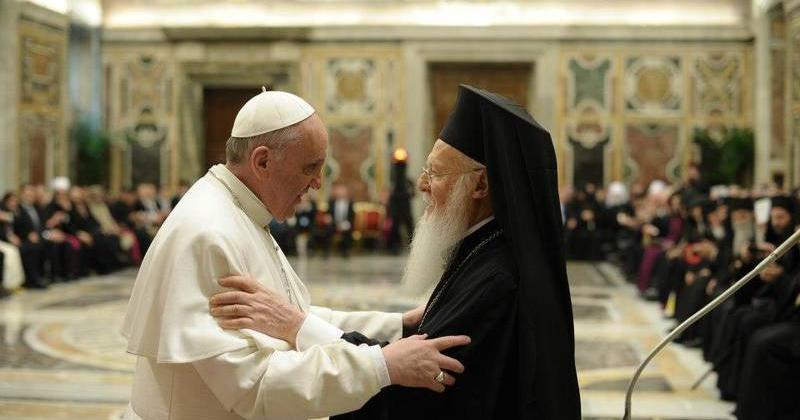Francis may be paying a visit to Turkey in November. Before the Pope’s pilgrimage to the Holy Land, the Patriarch of Constantinople, Bartholomew, had expressed the hope that Francis would follow in the footsteps of St. Andrew and go on a pilgrimage to Turkey to mark the feast of the Ecumenical Patriarchate on 30 November. Francis immediately agreed but there needed to be sent from the Turkish government. According to Marco Ansaldo, a Vatican correspondent and Turkish affairs expert writing for Italian newspaper La Repubblica, Ankara is apparently preparing to send the Holy See a formal invitation for a papal visit.
The Vatican is being extremely cautious, partly due to what occurred nine years ago at the start of Benedict XVI’s pontificate. On that occasion, an invitation from the civil authorities did not follow immediately after the Patriarchate’s invitation. This time, Ankara apparently has a November-time visit in mind. “The possibility of a visit is currently being looked into but no official confirmation has been given yet,” Roman Curia sources inform Vatican Insider. “For us it is a pending question,” they add.
There are many issues that need to be addressed. According to Aid to the Church in Need’s annual report, Turkish authorities have on a number of occasions expressed their intention to improve the conditions of religious minorities, sensitive to pressures from international organisations. The resolution adopted by the Council of Europe's Commission for Religious Freedom in March 2010 is part of this. The resolution asked Turkey to give legal recognition to religious minorities that did not previously benefit from this; the Latin Rite Catholic Church for example. It also called for Turkey to commit to combating all forms of discrimination.
On a number of occasions, Recep Tayip Erdoğan promised to return property that had been seized by religious minorities in 1923 when the modern Republic of Turkey was established and then in the mid 30’s and 60’s. This promise – made official with the signing of a decree – was made to the representatives of 161 religious foundations that were interested in the issue. These foundations belonged to the three non Muslim minorities recognised by the Treaty of Lausanne (1923), that is, members of the Greek Orthodox Church (led by the Ecumenical Patriarchate of Constantinople), members of the Armenian Apostolic Church and Jews. In November, the Directorate General of Foundations (a government body), decided to grant them legal recognition. Erdoğan gave interested parties a year to present their claims for the return of property or compensation, regardless of whether this property was in the hands of the State or had been sold to private entities. Such properties included churches, monasteries, cemeteries, hospitals, schools, residential buildings, fountains and land. More than a thousand of these had been confiscated from the Greek Orthodox Church (represented by the Ecumenical Patriarchate of Constantinople) while about 30 or so properties had been seized from the Armenian Apostolic Church; the Jewish community, meanwhile, should get back all the cemeteries that were in its possession prior to 1930.
Mgr. François Yakan, the Chaldean Patriarchal Vicar in Istanbul, protested against the exclusion of his Church from this decree. The Chaldean Catholic Church in Turkey is not mentioned anywhere in the Treaty of Lausanne and so has no legal status whatsoever. Mgr. Yakan has announced his intention to demand the return of property which the State seized from his Church. The same goes for the Syriac Catholic Church which is also not mentioned in the Treaty of Lausanne. It too intends to ask for some property to be returned to it: the Church of the Sacred Heart in Istanbul, the Monastery of St. Ephraim and some land in Mardin. All this does not include the property seized from the Armenians at the time of the genocide in 1915. This element, which is of no little importance, was contested by the Patriarch of the Armenian Apostolic Church, Aram I, (which was once based in Cilicia in southern Turkey, and later moved to Lebanon for security reasons), who wrote an open letter to Erdoğan stressing the inadequacy of his decision.
